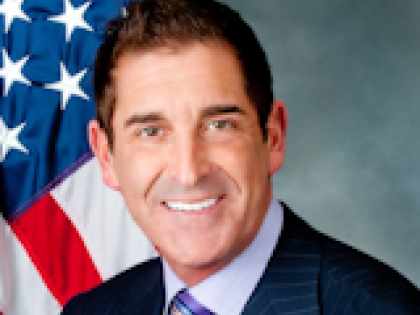
You’ve Got Mail: There’s a Sex Offender in the Neighborhood
Jeffrey D. Klein
May 9, 2009
-
ISSUE:
- Crime
Klein Urges State to Convert Existing Technology into Instant E-mail Alert Registry for Sex Offenders
Release Top Ten NYC Zip Codes with Sex Offenders
3,428 Sex Offenders Living in NYC
NEW YORK- Senator Jeff Klein (D-Bronx/Westchester) and Senator Brian X. Foley (D-Blue Point) called on the state to pass Klein's email notification legislation (S1362B) which would allow concerned parents and residents to receive instant email alerts every time a sex offender moves into a selected zip code. The NYS Senate is due to vote on the legislation Monday, May 18th.
Thanks to the statewide emergency communication system, NY Alert, which is managed by the Department of Homeland Security, it would be easy for New Yorkers to register for instant e-mail notifications. Currently, New Yorkers desiring up-to-date information on registered sex offenders in their communities must make daily searches of the Sex Offender Registry maintained by the Division of Criminal Justice Services (DCJS).
As of May 4th, there were 11,428 level 2-3 sex offenders in New York State's Sex Offender Registry, which classifies offenders according to their risk of re-offending: low-risk (Level 1), moderate risk (Level 2) and high-risk (Level 3). Members of the public can access this database at local police stations or via a toll-free telephone number. Level 2 and Level 3 offenders are also listed on an internet subdirectory at the DCJS website. However, the information changes constantly as new offenders are added or existing registrants update their information. E-mail updates would allow New Yorkers to keep tabs on a specific geographic area, such as where they live or where their children attend school, and would save them the time-consuming chore of making regular visits to the subdirectory website.
"More and more families with young children are choosing to stay in New York City and raise their families. It would be near criminal to deny New Yorkers the added convenience of better protecting our children from the kind of unsavory individuals who are, in many cases, our neighbors.. What better gift to give mom than peace of mind on mother's day?," said Senator Klein.
The lawmakers released a data for all registered sex offenders living in the 5 boroughs, broken down by zip code. Of the 3,428 known sex offenders residing in New York City, 133 live in Staten Island, 1,197 live in Brooklyn, 639 live in Manhattan, 928 live in the Bronx, and 531 in Queens (list includes only level 2 and 3 offenders listed on the registry).
The top ten zip codes are as follows: 10035 (130), Manhattan; 11221 (126), Brooklyn; 11233 (121), Brooklyn; 11207 (121), Brooklyn; 11208 (100), Brooklyn; 10016 (82), Manhattan; 11212 (75), Brooklyn; 11216 (67), Brooklyn; 10456 (66), Bronx; 10453 (66), Bronx.
"Protecting our children and families is the most solemn responsibility of our government," said Senator Brian X. Foley (D – Blue Point). "I am proud to work with Senator Klein to establish an email alert system that notifies families about sex offenders in their communities. The proposed email alert system is critically important because it will provide up-to-date information to residents and help parents safeguard their children from sex offenders."
"New Yorkers are already able to get notification of traffic delays, storm warnings and other important information from government agencies through the NY-Alert system. The cost to merge this information into NY-Alert and notify New York parents when sex offenders move into their neighborhood is negligible, and the benefit is self-evident. This system will be an important tool for parents to protect their children," added Assemblyman Rory Lancman (D-Queens) who is carrying the bill in the Assembly.
In New York City, an average of 15 level 2 and 3 sex offenders reside in each zip code
In addition, with more sex offenders subject to the 12-year-old registration requirements being released from prison every day and an increasing number of sex crimes, like sex trafficking, being added to the list of registerable offenses, the registry is likely to continue its expansion well into the future.
Share this Article or Press Release
Newsroom
Go to Newsroom
